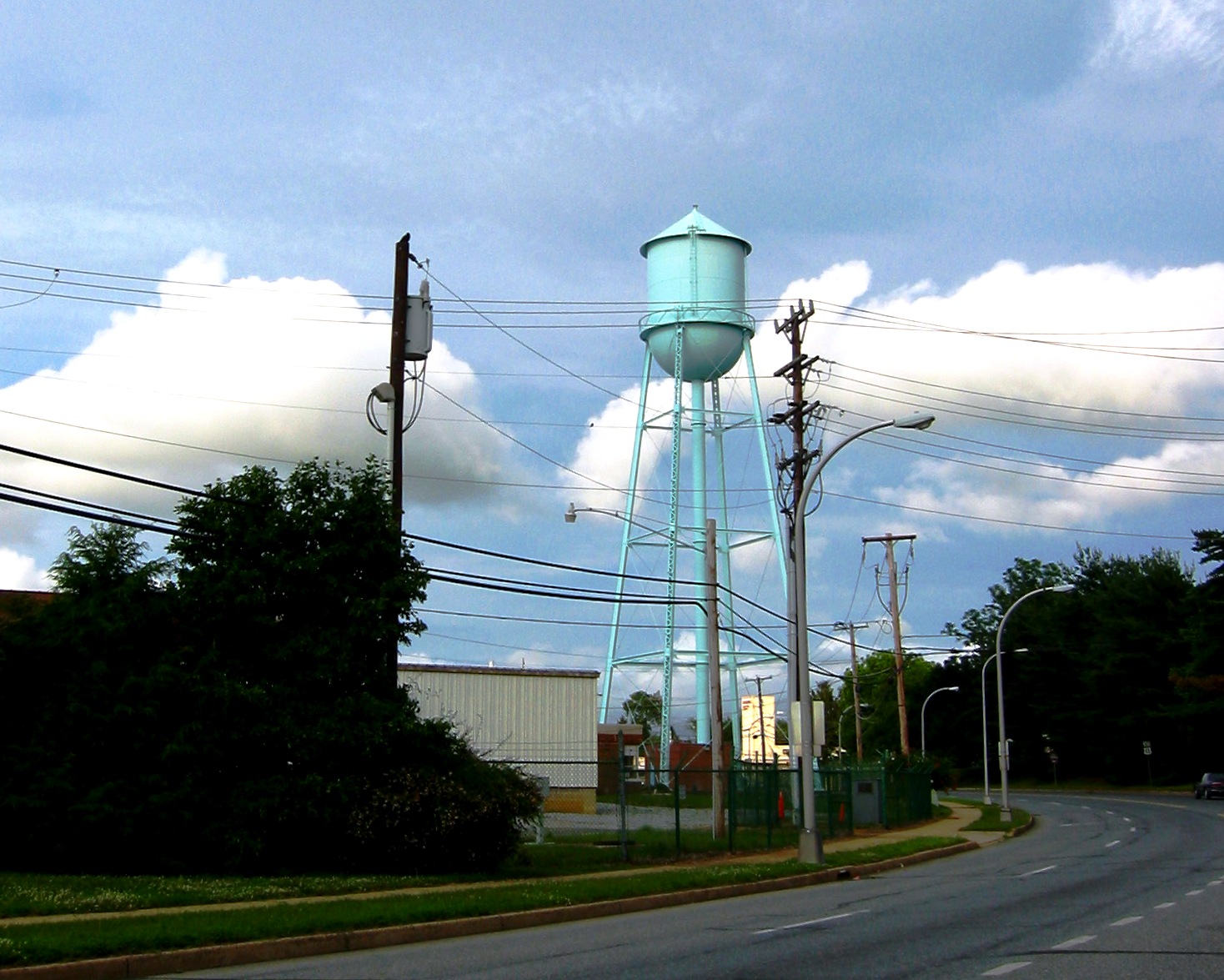The sandblasting of water tanks is part of a group of smaller sources of pollution known as area sources — smaller activities by businesses or facilities that, when measured across a group of sites, can accumulate to large amounts of pollution impacting Delaware’s air quality.
An air quality permit is required for sandblasting of outdoor water tanks in Delaware. Projects removing lead-containing coatings from water tanks by use of dry abrasive blasting must obtain a permit from DNREC’s Division of Air Quality.
Water tanks used for irrigation systems, firefighting, manufacturing processes, farm stock watering, and municipal water supply have, in the past, been coated with paints that contain lead or lead compounds. Lead is a public health concern.

Exposure to high levels of lead can cause damage to the brain and kidneys. Lead can, even at lower levels of exposure, permanently affect a child’s mental and physical growth.
Dry abrasive blasting is the process of propelling an abrasive material under dry, pressurized conditions against a surface, to remove coatings or to prepare the surface for subsequent coating. Dry abrasive blasting, also referred to as sandblasting, is often used to remove paint from water tanks before they are repainted.
Prior to 2019, “outdoor painting and sandblasting equipment” were exempt from the air permit requirement. The Delaware regulations applicable to air permits (7 DE Admin. Code 1101 and 1102) have been amended to remove an exemption for “…the removal of lead-containing coatings from outdoor water tanks by dry abrasive blasting.”
DNREC has developed a permit containing requirements that will ensure that blasting operations have sufficient containment measures to prevent the release of abrasive material into the environment. Applicants can refer to a flow chart to help determine if they need to apply for a permit or just to submit a notification form.
The required permit or notification can be applied for using the Digital DNREC ePermitting system. Find detailed instructions to complete a water tank source category permit application or notification.
In addition to the permitting program, Delaware’s regulation regarding Particulate Emissions From Construction and Materials Handling (7 DE Admin. Code 1106) prohibits emissions from sandblasting operations and states “No person shall cause or allow sandblasting or related abrasion operations unless sufficient contaminant measures are taken to prevent the sand or abrasive material from traveling beyond the property line where the operation is being conducted.”
Notification of No Lead-Containing Coatings (Artesian Water Company, Inc.)
School Lane Water Tank
440 School Lane, New Castle
Notification Date: Jan. 2, 2024
Permit WT-2003/01 (City of Newark)
Arbour Park Water Tank
307A Dove Drive, Newark
Effective: Aug. 31, 2023 – May 30, 2024
Notification of No Lead-Containing Coatings (Tidewater Utilities, Inc.)
32102 Legion Rd., Millsboro
Notification Date: Nov. 2, 2023
Notification of No Lead-Containing Coatings (Artesian Water Company)
1410 Industrial Drive, Middletown
Notification Date: Sept. 28, 2022
Permit WT-2022/01 (City of Dover)
Aero Park Water Tank
235 Galaxy Drive, Dover
Effective: April 17, 2023 – March 21, 2024
Permit WT-2021/02 (City of Dover)
General Foods Water Tank
1260 W. North St., Dover
Effective: May 25 – July 30, 2021
Permit WT-2021/01 (City of Wilmington)
New Castle Ave. Water Tank
3067 New Castle Ave., New Castle
Effective: April 26 – June 21, 2021
Permit WT-2020/02 (Tidewater Utilities, Inc.)
Dover Air Force Base Tank
Chad St. and Galaxy St., Dover
Effective: Oct. 7, 2020 – Nov. 7, 2021
Permit WT-2020/01 (SUEZ Water Inc.)
Tri-State Mall
Naaman’s Rd. and I-95, Wilmington
Effective: Feb. 5, 2020 – Feb. 5, 2021
Permit WT-2019/01 (Town of Bridgeville)
Water Tank #1
101 N. Main St., Bridgeville, DE
Effective: April 24, 2019 – April 24, 2020
Related Topics: air quality, air quality permits, area sources, clean air, lead, permitting and regulation, registrations, sandblasting, water tanks